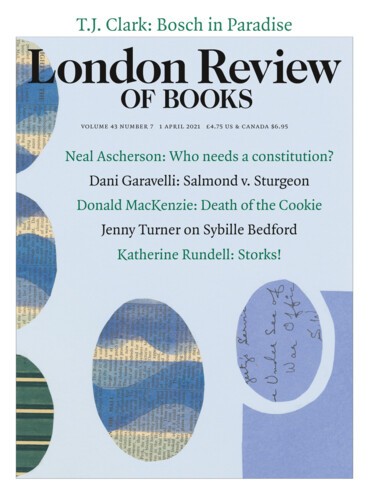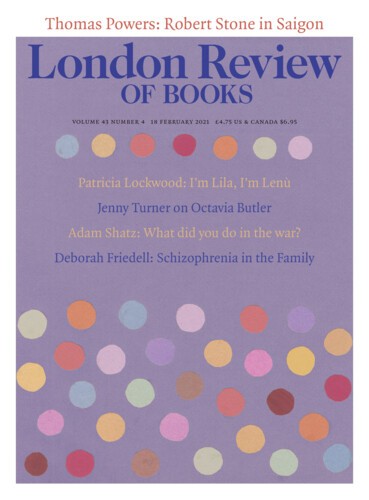Fed up with Ibiza: Sybille Bedford
Jenny Turner, 1 April 2021
At the beginning of November 1918, the sailors of the German High Seas Fleet mutinied in ports across the North Sea and Baltic coasts. Red flags went up first in Kiel, then in Berlin on 9 November, when Wilhelm II was deposed. Seven-year-old Sybille Bedford, meanwhile, was on a train with her amazing, ludicrously flighty mother, trying to get back to the family château in Baden from...





